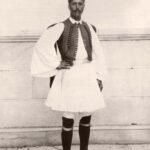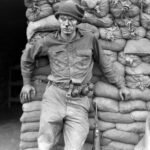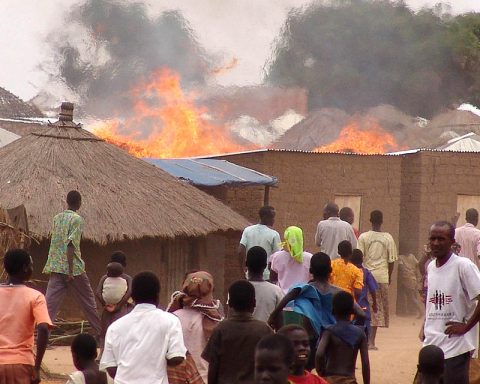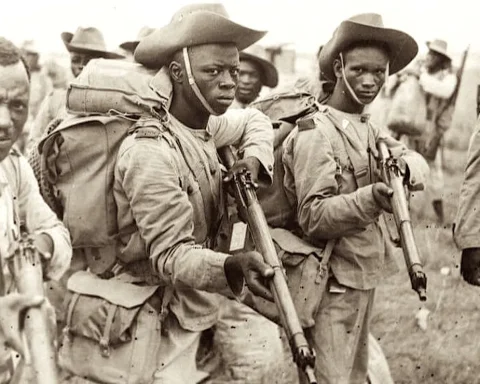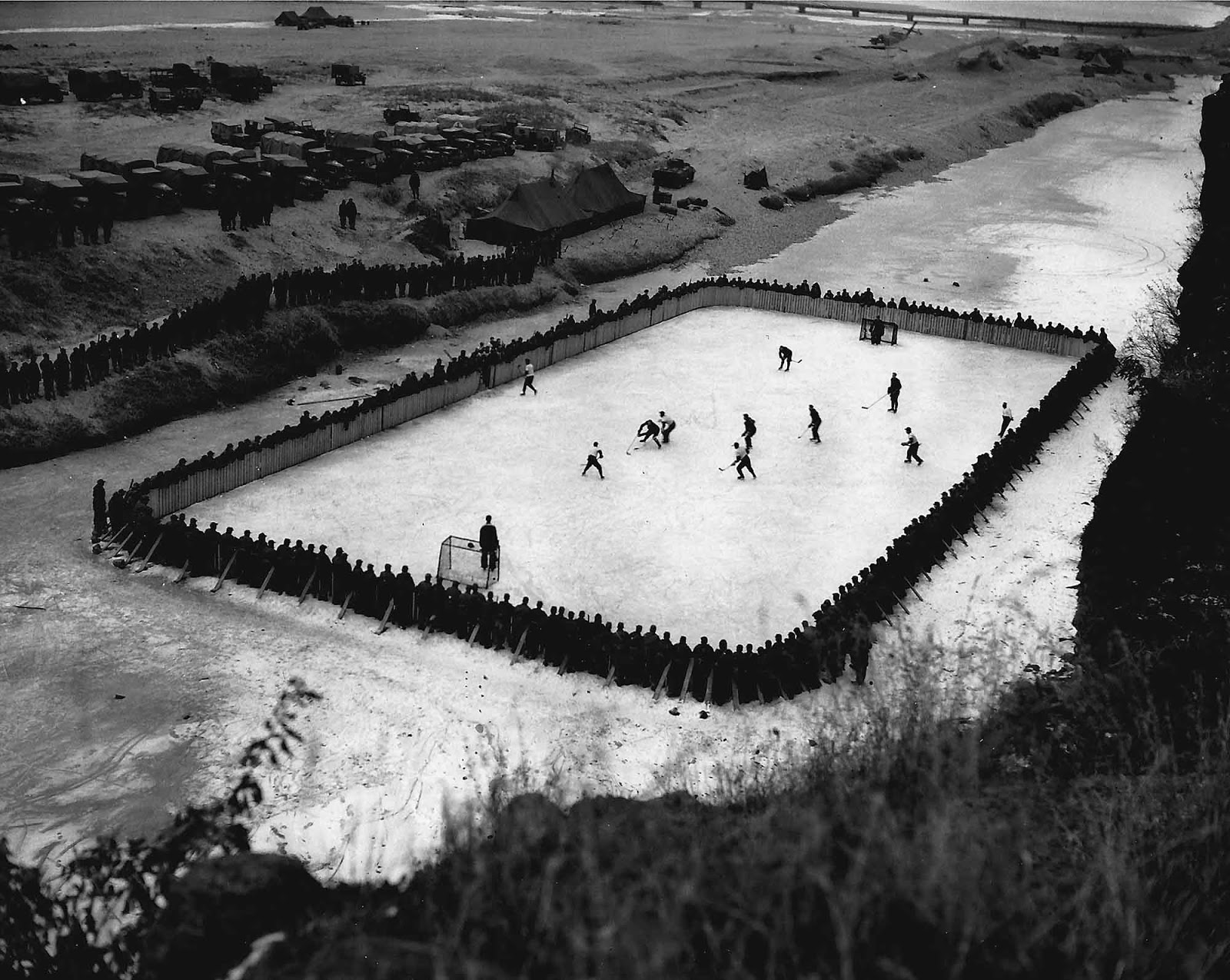
The 1952 winter was cold enough to freeze the Imjingang river. The river in northern Gyeonggi-do Province flows down and across the middle of the Korean Peninsula, and during this period, the peninsula was still at war, as the war had started in late June 1950.
South Korea was assisted and defended by the United Nations and other allied forces. Making part of the United Nations forces were many Canadian soldiers, who were dispatched along the western front. They were to repel and resist every attack from the north.
The river had become frozen and had turned into a great field of ice. Even at the time of this war, the soldiers felt the need to get involved in the winter sport of ice hockey.
Although the field ice wasn’t in good shape, the boards were only sandbags and wood. The Canadian soldiers readied themselves for a series of hockey games which was just a few kilometres from the aggressive Chinese forces. Since they couldn’t contain their love for the sport, members of two Canadian battalions: Princess Patricia’s Canadian Light Infantry (PPCLI) and the Royal 22nd Regiment (R22R), turned the frozen river into an arena for a hockey match.
Not minding the sounds of heavy guns of nearby U.S army artillery and the cold winter, the soldiers got involved in their sport of hockey. The origins of hockey were traced to Canada in the 19th century. The rules for ice hockey were first arranged at McGill in Montreal in 1879, and ever since, Canadians have been popular with Ice hockey.
With over 25,000 Canadians serving during the Korean War, the Canadian military decided that Canadian-born hockey players who had South Korean passports could skate for both the Korean men’s and women’s hockey teams. The hockey games also helped in damage control and the Canadian military decided to come up with comfort programs, soon enough the troops in Korea grumbled about the poor job the military was doing.
This provoked a debate in the House of Commons, in relation to this, Defence minister Brooke Claxton arrived in South Korea in late 1951 and made a promise to the soldiers to give them sports equipment, cigarettes and movies. The Canadians coach both teams to build talents and prevent embarrassment at the Olympics.

